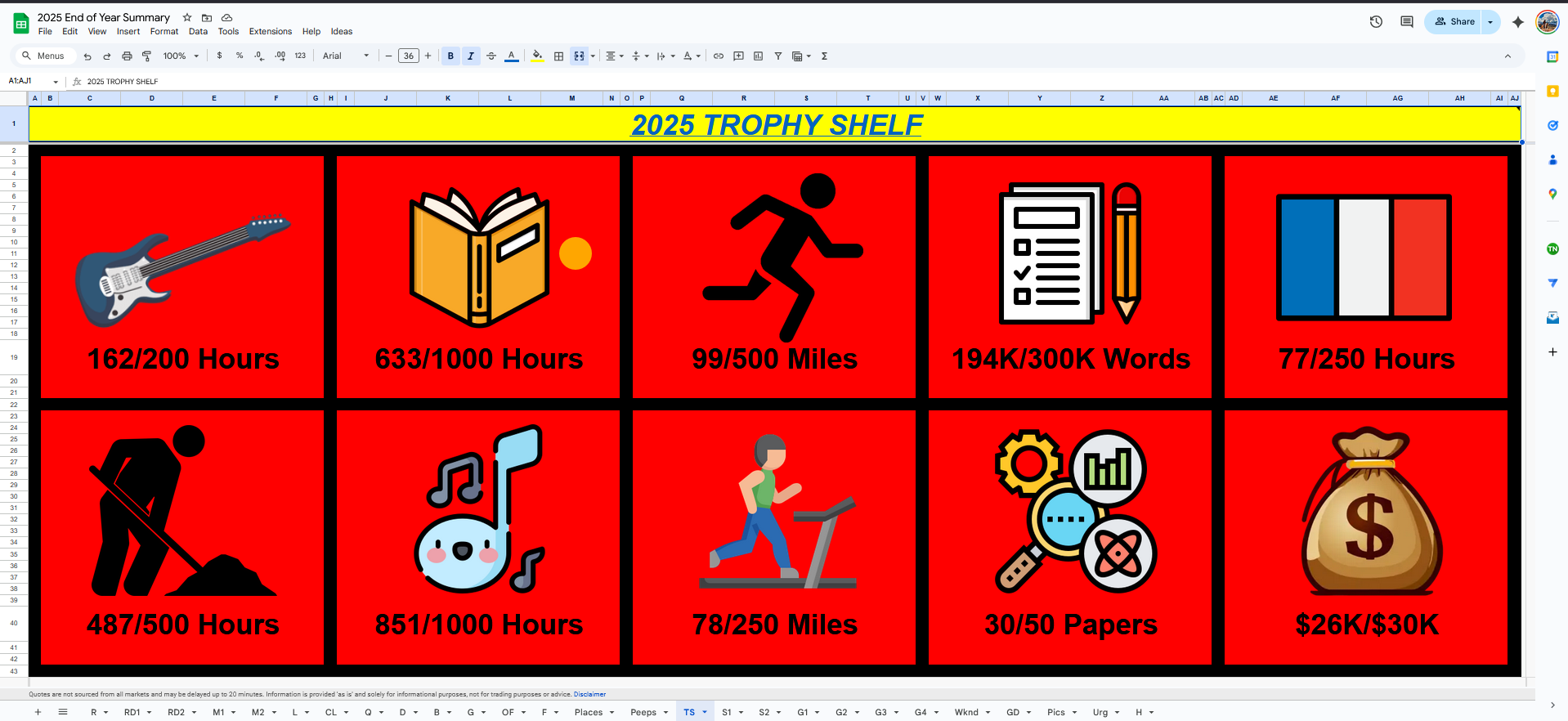
LifeLoggerz Q&A — Tracking Life, One Cell at a Time
🧠 LifeLoggerz Q&A — Tracking Life, One Cell at a Time
Welcome to LifeLoggerz, a blog by a grad student obsessed with data and self-improvement.
For the past three years, I’ve been tracking dozens of aspects of my daily life in Google Sheets — everything from sleep and food to diary logs and productivity.
Here are some of the most common questions I get about how (and why) I do it.
💬 How do you have so much time?
It’s not that I have more time — it’s that I’ve removed what doesn’t matter.
I don’t drink, party, scroll endlessly, or fill my day with noise. I live at home with my family, which gives me the rare freedom to focus deeply on my goals — finishing my PhD, playing flamenco guitar, and building this blog.
Logging my life helps me see where my time actually goes. Once you see clearly, you realize how much of your day you can reclaim.
⏰ How long does life logging take each day?
Only about 3–5 minutes per day.
Most logs are dropdowns or quick notes in my Raw Data sheet. My diary logs take a little longer — maybe 10–30 minutes at night when I’m winding down.
The system’s mostly automated with Google Apps Script. I built pop-up input forms, daily backups, and highlight functions so logging feels effortless.
It’s less of a chore and more of a nightly reflection ritual.
🧩 What have you learned from tracking your life?
A lot — more than I ever expected.
- Time awareness — Life moves fast until you track it. Looking back at any day in 2023 or 2024, I can recall what I did, what I ate, and how I felt.
- Sharper memory — Logging daily strengthens your recall; small details start to stick naturally.
- Accountability through data — The spreadsheet never lies. It shows you your habits in black and white.
- AI as an ally — Integrating ChatGPT with Sheets taught me that automation enhances mindfulness, not laziness.
- Simple systems scale best — My first sheet only tracked Sleep, Food, and Diary. Today, it tracks 13+ categories — all built on the same clean foundation.
🕶 Do you track “wasted time”?
I avoid that term.
I prefer Passive Time — moments where my attention drifts or I recharge.
Watching a film with family isn’t “wasted.”
Doomscrolling for 30 minutes probably is.
I don’t track to judge myself — I track to keep a healthy balance between intentional and passive time.
📄 Can I have your template?
Absolutely.
Each year, I release a new version — the 2026 LifeLoggerz Template will be free to download soon.
It’s simple, clean, and works best in Google Sheets (not Excel).
You can:
- Delete sheets you don’t need (e.g., Dreams → add Mood or Calories instead)
- Use it without scripts or formulas
- Add automation later through Google Apps Script
🧠 Pro tip: If you want to use Apps Script, make sure it’s a native Google Sheet (
.gsheet), not a.xlsximport.
🔁 Will you keep doing this forever?
Pretty much.
I can’t imagine not logging. It’s become second nature.
Even if I skip a night, I fill it in the next morning by memory.
It’s not about perfection — it’s about reflection.
Every year, I refine the templates, improve the visualizations, and share the scripts for free so others can join in.
LifeLoggerz isn’t a one-time project — it’s a lifelong experiment in self-awareness.
📱 Why not build an app for this?
I’ve thought about it. But I love how transparent Google Sheets is.
You can see every formula, tweak it, and understand the logic.
Apps tend to hide the system; Sheets teaches you how it works.
Plus, you already have the tool — it’s free, cloud-based, and endlessly customizable.
Maybe one day I’ll turn it into an app, but for now, I want to empower people to build their own systems.
🚀 What’s next?
2026 is about sharing everything I’ve built — not just the sheets, but the philosophy behind them.
Upcoming posts:
- “Building Your 2026 Data Archive”
- “Using ChatGPT to Summarize Your Diaries”
- “Designing Graph Dashboards in Sheets”
- “Performing a Time Audit That Actually Works”
- “How Life Tracking Improves Memory & Focus”
Outside the blog, I’m working on my PhD in Concrete Materials, learning Flamenco guitar, and building the LifeLoggerz ecosystem to help people turn data into direction.
“You can’t improve what you don’t measure.
LifeLoggerz is about turning awareness into action — one cell at a time.”